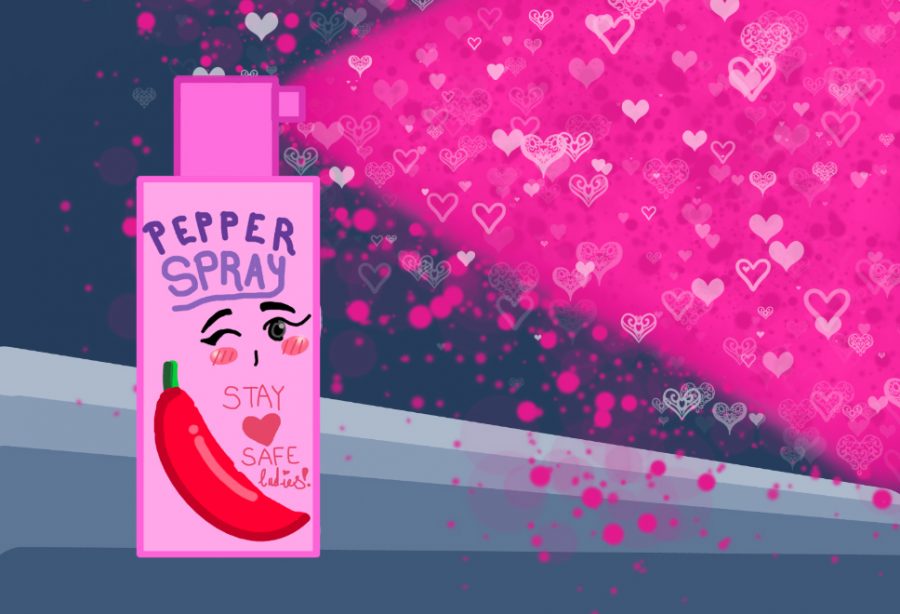OPINION: Pullman is not as safe as it seems
Just because Pullman is a low-crime town does not mean people shouldn’t be careful
Be vigilant, Pullman’s low crime rate does not mean this town is completely safe. Understand the social situations you are in and know the risks
March 13, 2020
I remember looking at the brochure for WSU Pullman in 2018 and reading that it was the third safest college town in America. There was no need to fact check it because I thought I felt it throughout the campus and the town. And yes, Cougs helping Cougs plays a major role in our community safety. But the reality is that as of the 2019 SafeWise review of college towns Pullman has slipped to number fifteen and was apparently unranked in 2018 as well.
This challenge to the preconceived notion of safety in Pullman creates an interesting conversation regarding how safe we are. The safety of students is not dependent on the regulation of local police officers or campus security, as we are all adults who make our own decisions and often choose to ignore law enforcement anyways. If the stats for safest college towns included MIPs per thousand residents, or alcohol related trips to the hospital we might not be as highly ranked as we are even now.
Our ongoing battle with the party school reputation of ‘Wazzu’ seems to be an ever-growing dilemma. The lack of regard for personal safety is often in direct relation to the consumption of alcohol and the way we talk about it. In passing the conversation includes jokes and lighthearted comments diminishing the actual risks being faced.
“I can’t remember the last time a girl was walking home alone in Pullman, and got attacked,” Pullman Police Commander Jake Opgenorth said.
In practice this is an amazing feat that speaks to the safety of the town, but in reality, it probably demonstrates a lot of what happens under the radar of local law enforcement. The cause for concern is rarely just a walk home with someone following you, as where we live, we more often see gender-based violence while out having a good time.
The sad reality of the situation is that the conversation about personal safety and what we should do in order to defend ourselves is not often had until after something happens. With the rise in regulation on Greek row, I find myself wondering if this will have any impact on the reporting issue found in Pullman. We seriously lack data on sexual assault cases among other crimes, and hopefully these changes encourage victims to feel more comfortable speaking out.
Opgenorth said that when reporting an incident, it is important to do so thoroughly and efficiently, adding that going to the hospital as soon as possible is a crucial way to arm yourself with the power to decide.
A rape kit, done at a hospital can be opened under the name Jane Doe, and a conversation with local police can be had without ever opening a case. The only time there must be a name attached to the case is when the victim begins asking police for follow through, as the accused has a right to know who is accusing them.
Yes, the conversation around sexual assault is uncomfortable. But without education on what can be done victims remain powerless and at the will of their attackers — which in my opinion plays into the mental trauma that comes with these experiences.
Arming yourself with the knowledge about what to do in these instances is just as powerful as carrying around a can of pepper spray. Additionally, even if you think this will never happen to you it is even more important to be prepared to take care of a close friend or loved one in the case that they must go through this.
The Do Better Campaign was started at Denver University to bring attention and focus to gender based violence on college campuses. Victims can anonymously submit stories of their experiences and gain support and recognition for their struggles.
“Most university students receive some sort of conversation or presentation about consent and preventing sexual assault during their orientation or first year, but that is often the end of the conversation,” said Shannon Saul of the Do Better team. “Students need universities to take a holistic approach to discussing healthy relationships and sexuality, and this conversation needs to be ongoing, trauma-informed and developed by experts.”
It is time to understand what can be done to regain power, whatever that means for you. Personally, I recommend looking into pocket knives that are legal to carry or getting a new can of pepper spray. But at the end of the day whatever makes you feel like you are armed and prepared to take on these situations — whether that be a legitimate weapon or just the knowledge of what to do if something does go wrong — is the best defense mechanism you can have.























Concerned Reader • Mar 17, 2020 at 3:53 pm
You are invoking dangerous messages to the student body, decreeing they require a weapon to defend themselves.
Likewise, you are openly stating it is common practice, and thus accepted, to whole-sale ignore the rule of law.
Your conclusions being these incidents would lower the status of Pullman in regards to safety, yet you use now evidence to indicate otherwise.
As a budding journalist, you ought look into the details, and remove opinion, even from opinion pieces. Take the General Cultural (ethos) approach and write from this perspective, armed with facts, not ineffective blades.
All in all, this is another sad piece of ‘reporting’ from an outlet already marred with inaccuracies and libel. It’s a wonder a legal team has not taken The Daily Evergreen to task yet. I’m sure something is in the works.